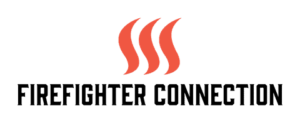
As a Division Chief and a Fire Chief I was task with learning how to give a speech. Standing in front of a crowd was a struggle for me as it is for most. I had to learn from mentors, classes, and organizations such as Toastmasters to become a decent speaker. 10 Skills for Giving a Great Speech. Use at Firefighter Interview!
Here are some techniques that I learned to become good speaker. Some of you might be asking why, as an aspiring firefighter, do you need to learn how to be a good speaker? The first, and most important, is the firefighter career hiring test will come down to an oral board interview process. Good speaking skills will help you with your presentation skills and speaking skills for the Firefighter oral board interview process.
The similarities between giving a speech and participating in an Firefighter oral board interview are closer than most would like to believe. Having good skills as a public speaker will give you an advantage over others firefighter candidates in the interview process. The Firefighter oral boards are very different from a typical interview in that you will usually be sitting in front of an interview panel consisting of 3 to 5 interviewers or board members.
10 Skills For Giving a Great Speech
1. Speak from the heart.
How this applies to Public Speaking.
Believe in what you have to say, or don’t say it. If you are passionate about your subject the words will come. Speak about the fundamental beliefs you have about life, the simple truths that you believe in with all your heart that relate to your topic.
How this applies to an interview.
During the interview use this same fundamental truth and strong beliefs and it will shine through for you answer to each question. Believe in the subject, that’s you, and sell yourself with passion.
2. Write down two or three specific objectives you have for this speech.
How this applies to Public Speaking.
Ask yourself, What do you want the audience to do or learn as a result of your speech? Do they want to think differently? Act differently? Do something differently? Answering these questions will help you focus on the topic and priorities of your speech.
How this applies to an interview.
During your preparation for the firefighter oral boards write down your top skills, training, experience, and morals. Focus these specific traits and values with each answer and the interview panel will see your values and morals shine through. This will give the interview panel the answers about you they need to decide in your favor.
3. Write it out.
How this applies to Public Speaking.
When you give a speech be sure that people need to hear what you have to say. To do this you need to understand the topic so well that you could explain it to an eight-year-old. By writing it out several time you will know your speech and will be able to give the speech with confidence. There is nothing worse than listening to a speech that someone is reading. If you need notes to help you keep on topic then put headings on 3 X 5 cards to help with this.
How this applies to an interview.
This same skill will help you during the interview process. Write down your answers to the questions that are typically given. See my list of the top 30 questions asked during a firefighter oral interview. I would also suggest that you write out your training and work history from your Firefighter resume. I am always surprised by how many firefighter candidates don’t know their resume well and stumble with questions relating to items on their resume. See my post on writing a great firefighter resume.
4. Be present.
How this applies to Public Speaking.
Connect with your audience in the first 60 seconds and then engage with them throughout your speech. Once you get the audience rolling, be sure to embellish certain comments that you know are being well-received.
How this applies to an interview.
This is true for your interview as well. The first question is the most important. How you answer this first question will set the tone for the rest of the interview. Take your time, think through your answer and be present when you give your answer. Make eye contact with the interview panel members and speak with confidence.
5. Know your audience.
How this applies to Public Speaking.
Interview the program chair in advance to know who will be sitting in your audience and what they expect to hear from you. What is the theme of the meeting or conference? What is their purpose for everyone being there? The importance is that this now becomes your purpose for being there. Be sure to give your audience not just what they want to hear, but also what they need to hear.
How this applies to an interview.
Apply this same process in preparing for your interview. Know the department and the reason for hiring. Is it because they are adding a station? Is it because they are staffing ambulances? Know what services they provide. Do they staff a hazardous materials response team? Do they have a dive rescue team? Do that provide fire-based ambulance transport? Knowing as much as possible about the department will help you to better answer many of the question that will be asked.
6. Room Setup.
How this applies to Public Speaking.
Be sure to check out the room where you will present your speech in advance. Knowing the layout and the lighting can help you to move around more freely and make eye contact with your audience. For example, when checking the room, you realize that the lighting will black out the audience for you due to the lights being directly in your eyes. At this point you can tell the stage personnel that you can’t give a speech with the audience in darkness. As a speaker, it is important that you see the faces in your audience.
How this applies to an interview.
Even though you can’t see the interview room in advance you can take a mental note of the room setup as you enter. Think about how you can make better eye contact. If you would like to move the chair closer for example ask if that is ok. Try and make yourself as comfortable with the room as possible.
7. Is there a technique?
How this applies to Public Speaking.
Try to be as natural as possible and just speak conversationally. Talk to your smaller audiences as if you were in their living room. Don’t look over their heads or beyond them. Speak directly to them. If you are addressing a crowd of several hundred or more people, look at one person, then another, then a third. Making this eye contact will help you engage with the audience.
How this applies to an interview.
Again, make eye contact speak as if you are having a one on one conversation with the panel member that asked the question. Do this while making occasional eye contact with other panel members.
8. “Ums” and “Ahs.”
How this applies to Public Speaking.
“Ums” and “ahs” come from uncertainty, habits, and nerves. The key is to know your subject and what you want to say. Then practice, practice, practice. Use your mirror or give your speech to your friends and family. Having confidence and knowledge will calm nerves and help you to keep your focus. This comes from preparation and practice.
How this applies to an interview.
Practice in front of family or friends. Have them correct these nervous verbal ticks. Have them also watch for non-verbal ticks like bouncing your legs, tapping on the table, talking excessively with your hands, etc. This will help you to correct these issues.
Take a minute to read over my post, 9 thing you should not do in your firefighter interview for additional help.
9. Personal Stories
How this applies to Public Speaking.
Be sure to share your personal stories with the audience. as they relate to the speech topic. People will learn from your vulnerability and your mishaps. Your story is probably only a few steps away from their own story. We delineate our thoughts visually and so your audience needs to see what they hear. You don’t have to be clever, just share your life with your audience. Remember you are looking for their trust and trying to help them. So just consider them to be your friends and inject humor wherever possible.
How this applies to an interview.
Making your answers personal are important however I want to stress that too many stories will likely cause you to lose your focus of the answer to the question. If you choose to tell a story be sure it relates directly to the question asked.
10. Closing your speech
How this applies to Public Speaking.
Develop an action plan. What do you want your audience to do now that they’ve heard your speech? Go around the room, and ask them to share one nugget they got. Ask them for one idea that they can use Now. Be sure to summarize your speech and then give them a call to action.
How this applies to an interview.
Think about how you want to end the interview. The final question is always, “Is there anything you would like to add?”. Think about how you will answer this, making sure you are leaving them with good, positive information about you and why you should be their top candidate for the position.
Once you have completed your interview thank them for their time and the opportunity to apply for the position.
101 Easy Ways To Improve Your Speaking Skills For Professional Success!
Are you ready to reach the next level of credibility and influence? Your ability to speak confidently and persuasively is your most valuable asset. With it, you can connect with people, share your ideas, and realize your dreams.
Summary:
Know your audience, and practice! Taking public speaking classes and attending programs like Toastmasters will help you hone your skills as a public speaker and give you confidence during your oral board interview.
Take a minute to read over my post, 9 thing you should not do in your firefighter interview for additional help
Take some time and watch good speakers on stage. A great platform for this is viewing Ted talks on YouTube. See how they capture the attention of the audience. Watch how they interact with the audience through eye contact and be present in their personally story or journey on the topic. These same skills are vital for a good oral board interview.

